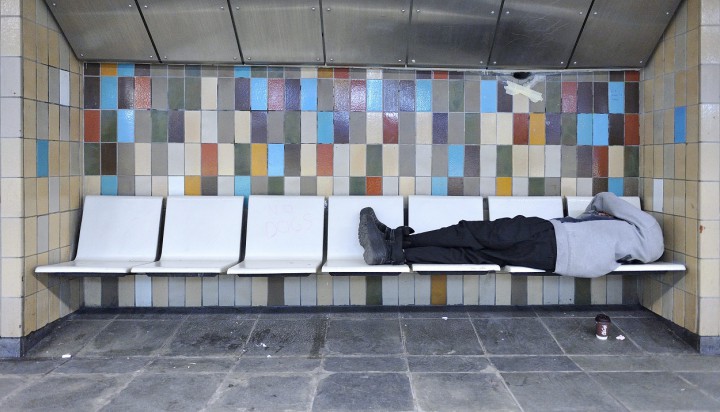MONTREAL – The Foundation of Greater Montreal released its 2015 Vital Signs report, painting a comprehensive portrait of the city’s economic and social well-being.

The study encompasses the 82 municipalities that make up the Greater Montreal metropolitan area and while there is some good news, it’s not all peaches and cream.
On the economic front, the skies over Montreal have cleared.
According to the report, Montreal is the province’s economic driving force, contributing to 53.4 per cent of Quebec’s Gross Domestic Product (GDP).
In comparison, Toronto accounts for 30 per cent of Ontario’s GDP.
The study also mentions that Montreal enjoys a competitive and diverse economy and is gaining ground as a global financial hub, ranking 18th among 81 financial centres worldwide.
The rosy economic outlook does not preclude hardships for some sectors of the population.
Immigrants have been hit especially hard.
In 2010, 145, 000 made use of food banks.
Between 2008 and 2013, the proportion of immigrants relying on the service increased by 11.8 per cent.
Another worrisome factor is the aging population.
- Train goes up in flames while rolling through London, Ont. Here’s what we know
- Wrong remains sent to ‘exhausted’ Canadian family after death on Cuba vacation
- Liberals having ‘very good’ budget talks with NDP, says Freeland
- Budget 2024 failed to spark ‘political reboot’ for Liberals, polling suggests
READ MORE: Greying nation: Canada has more seniors than kids for the first time ever. Here’s what that means
In Greater Montreal, for nearly 15 years, the percentage of people aged 15 and under has continued to decline, while the population that is 65 and over has continued to grow.
To maintain economic growth, seniors will have to postpone retiring in favour of continuing to work.
While immigrant influx can help stem some of the effects of an aging population, Montreal trails far behind Toronto and Vancouver in terms of population growth.
Homelessness remains an issue on the island.
In March, volunteers hit the streets counting the number of homeless people.
The official tally was 3,016 with 429 of them spending their nights outside.
That’s less than Vancouver, but more than Toronto or Calgary.
READ MORE: Montreal study shines a light on city’s homeless
Aboriginal people make up 0.56 per cent of the Montreal population, but represent 10 per cent of those who are homeless – adding to their vulnerability.
While Montreal is considered a fairly peaceful city, ranking 36th out of 38 metropolitan areas in terms of homicides, one very troubling trend is the level of domestic violence.
Montreal ranked first among Canadian cities in levels of family violence, far ahead of Toronto and Vancouver.
Yvan Gauthier, President and CEO of the Foundation of Greater Montreal who presented the report to the Board of Trade of Metropolitan Montreal on Tuesday found the statistic very disturbing.
“We have a serious problem, and this problem applies to all age groups,” he said.
On the environmental front, the report suggests that more needs to be done.
In 2014, there were 64 days of poor air quality on the island, an increase of 20 per cent from the previous year.
The number of cars on Montreal roads may have something to do with that.
From 2008 to 2013, the number of cars in Greater Montreal increased two times faster than the number of people.
The metropolitan area saw 11.4 per cent more cars, but 5.1 per cent more residents.
Road congestion is more than an environmental problem, costing taxpayers $1.4 billion per year, according to Gauthier.
Despite some worrisome trends, Gauthier ended his presentation with a message imbued with optimism.
“While the success of a large city can be measured by its ability to grow, our success should also, perhaps above all, be measured by our ability to advance hope,” he said.
“This is the ambition that must unite us and mobilize us for the 375th anniversary in 2017, so that everyone in Greater Montreal, in every district and borough, will feel they have real cause for celebration.“




Comments